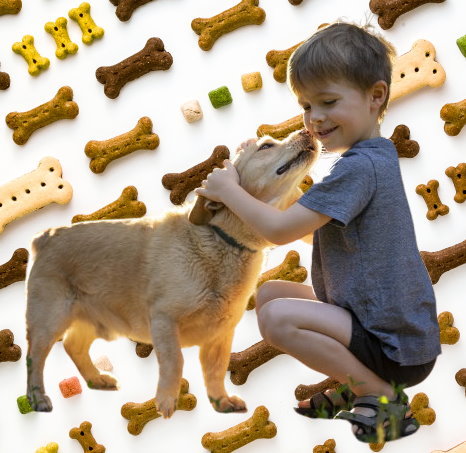Welcome to Dog Training Newbies !
Welcome to Dog Training Newbies !

Fear-based aggression in dogs can be a challenging behavior issue to address. When a dog reacts aggressively out of fear, it is crucial to understand the underlying causes and implement appropriate strategies for rehabilitation and training. In this article, we will delve into the complexities of fear-based aggression in dogs, explore its root causes, and provide strategies to help rehabilitate and train fearful dogs. By gaining a deeper understanding of fear-based aggression and employing positive and patient methods, we can work towards creating a safe and harmonious environment for both the dog and their human companions.
RECOGNIZING FEAR-BASED AGGRESSION
Fear-based aggression in dogs manifests as aggressive behaviors when the animal perceives a threat or feels fearful and cornered. Common signs of fear-based aggression include growling, barking, lunging, showing teeth, or even biting. It is essential to differentiate fear-based aggression from other forms of aggression, as the underlying emotions and triggers may differ. Understanding the specific triggers for fear-based aggression is crucial for effective rehabilitation.
IDENTIFYING ROOT CAUSES
To address fear-based aggression, it is vital to identify the root causes triggering the fear response in dogs. Traumatic experiences, lack of socialization, genetic predisposition, or a combination of these factors can contribute to fear-based behaviors. It is essential to work with a professional, such as a certified dog behaviorist or trainer, to evaluate the dog's history and behavior and determine the underlying causes of the fear-based aggression.
CREATING A SAFE ENVIRONMENT
Creating a safe environment is paramount when rehabilitating a fear-aggressive dog. Provide a secure space where the dog feels comfortable and can retreat to when feeling overwhelmed. Remove or minimize exposure to triggers that elicit fear and aggression. Gradually expose the dog to controlled and positive experiences, ensuring they feel safe and supported throughout the process.


POSITIVE REINFORCEMENT TRAINING
Positive reinforcement training is critical in rehabilitating fear-aggressive dogs. Punishment or forceful correction methods can exacerbate fear and aggression, leading to further behavioral issues. Reward-based training, using treats, praise, and play, helps build trust and positive associations. Focus on rewarding calm and non-aggressive behaviors, redirecting the dog's attention away from triggers, and gradually increasing their tolerance to fear-inducing stimuli.
COUNTERCONDITIONING AND DESENSITIZATION
Counterconditioning and desensitization techniques are effective in helping fearful dogs overcome their triggers. By gradually exposing the dog to the stimulus that triggers fear, at a distance or intensity that they can handle, and pairing it with positive experiences (e.g., treats, play, calm praise), we can change the dog's emotional response. This process helps the dog associate previously feared triggers with positive outcomes, reducing fear-based aggression over time.
PATIENCE, CONSISTENCY, AND PROFESSIONAL GUIDANCE
Rehabilitating a fear-aggressive dog requires patience, consistency, and professional guidance. Progress may be slow, and setbacks are normal. Avoid rushing the process, as this can heighten fear and anxiety. Seek assistance from a qualified dog behaviorist or trainer experienced in fear-based aggression to develop a tailored training plan and provide ongoing support.
Understanding fear-based aggression in dogs is essential for effective rehabilitation and training. By recognizing the signs, identifying root causes, and creating a safe environment, we can lay the foundation for positive change. Utilizing positive reinforcement training, counterconditioning, and desensitization techniques, we can help fearful dogs overcome their triggers and develop more confident and non-aggressive behaviors. Remember, patience, consistency, and professional guidance are key to successfully rehabilitating fear-aggressive dogs. With dedication and a compassionate approach, we can help fearful dogs lead happier and more fulfilling lives as well-adjusted members of our families.